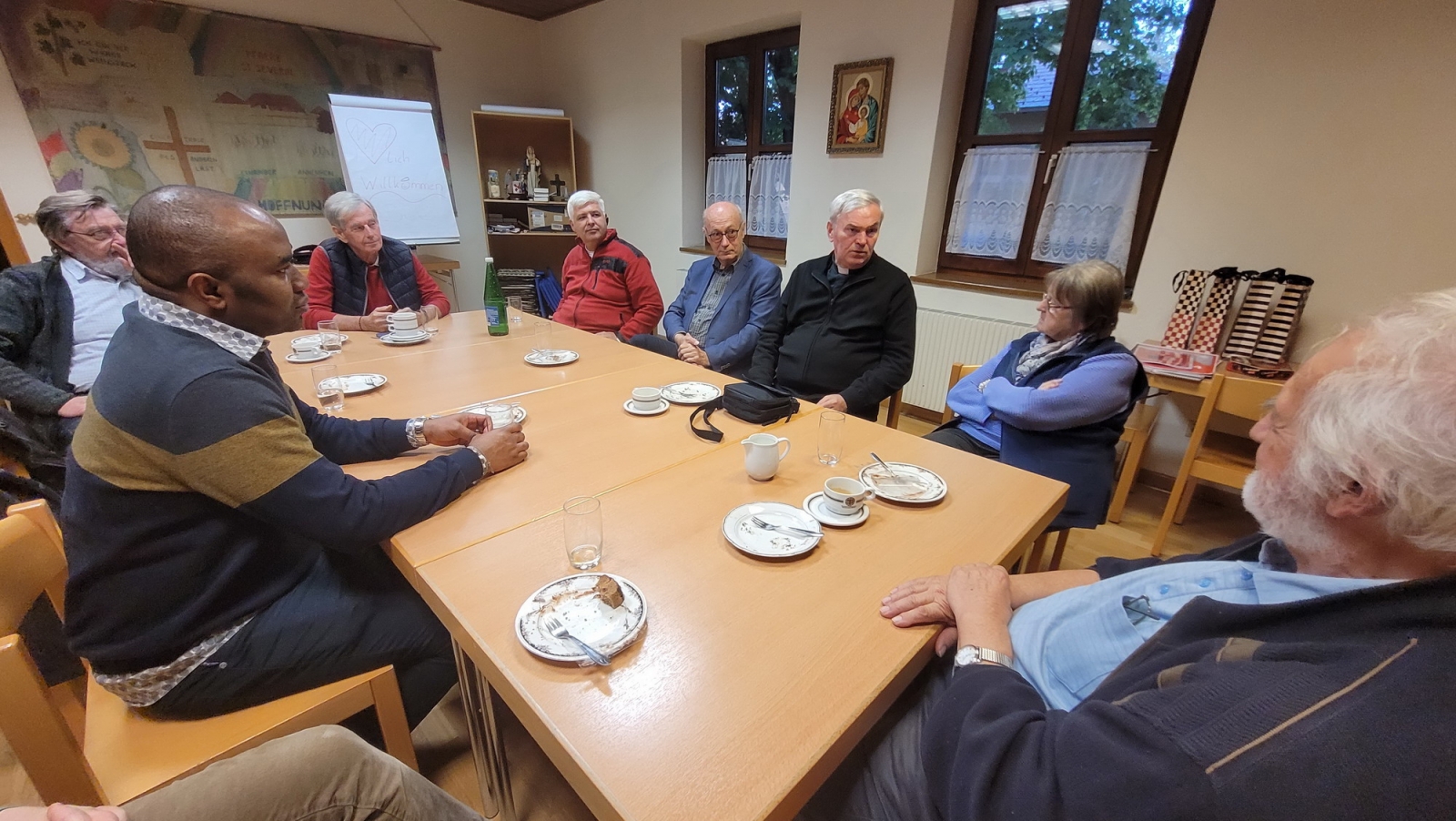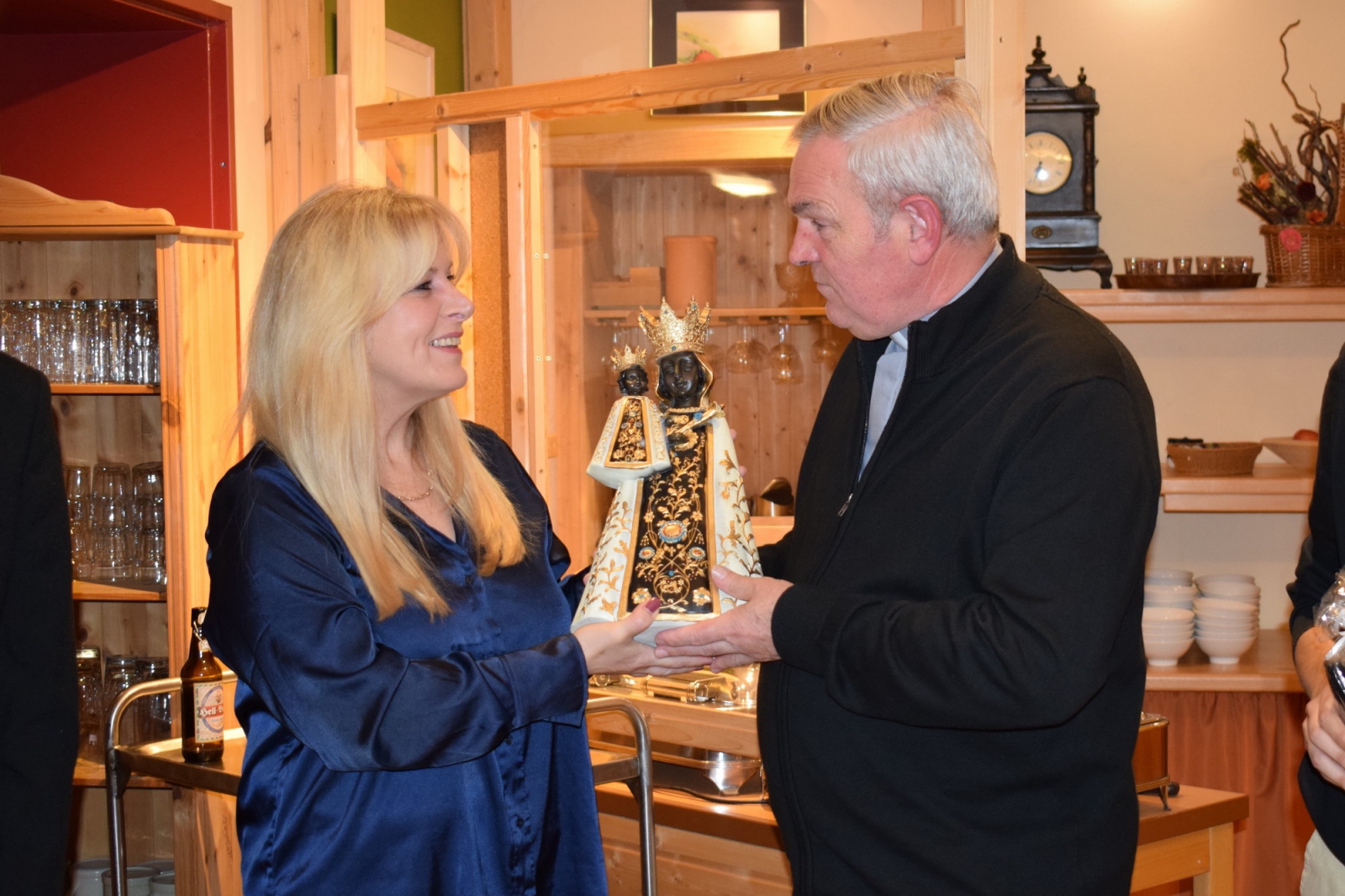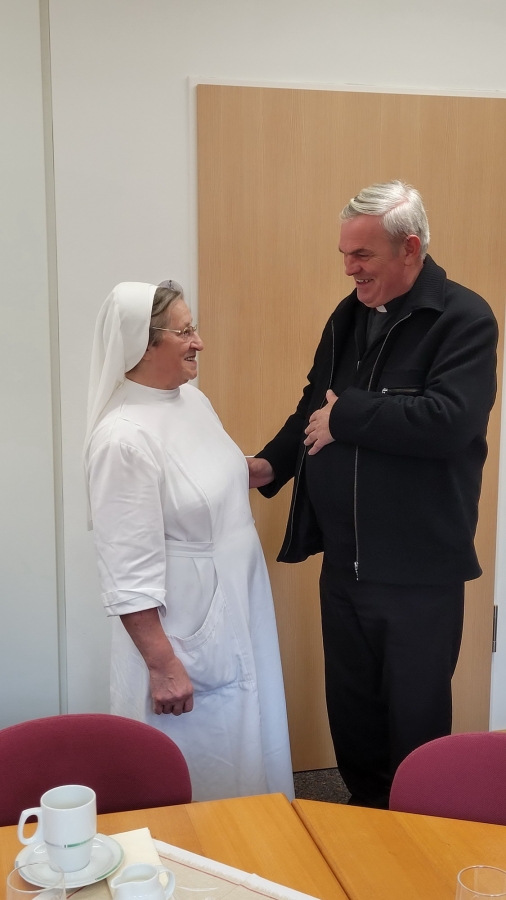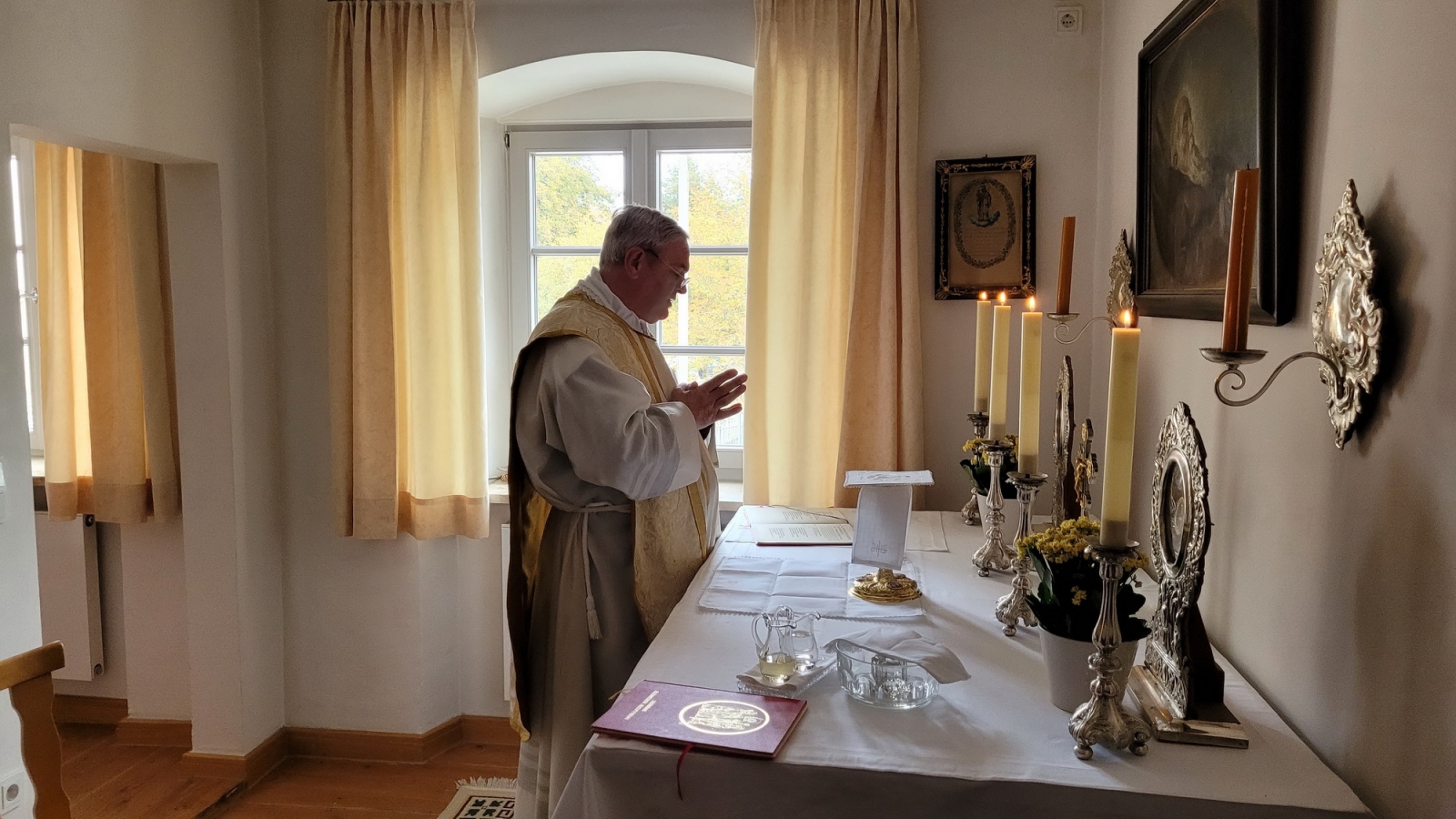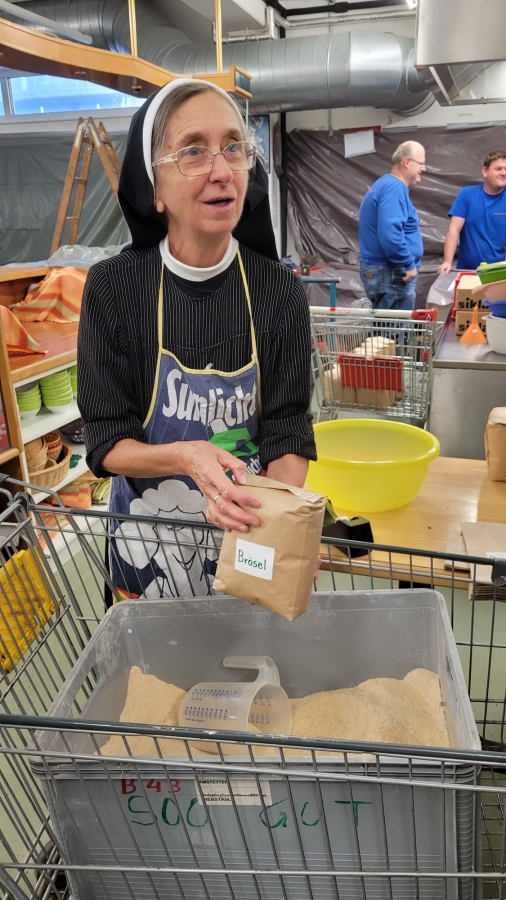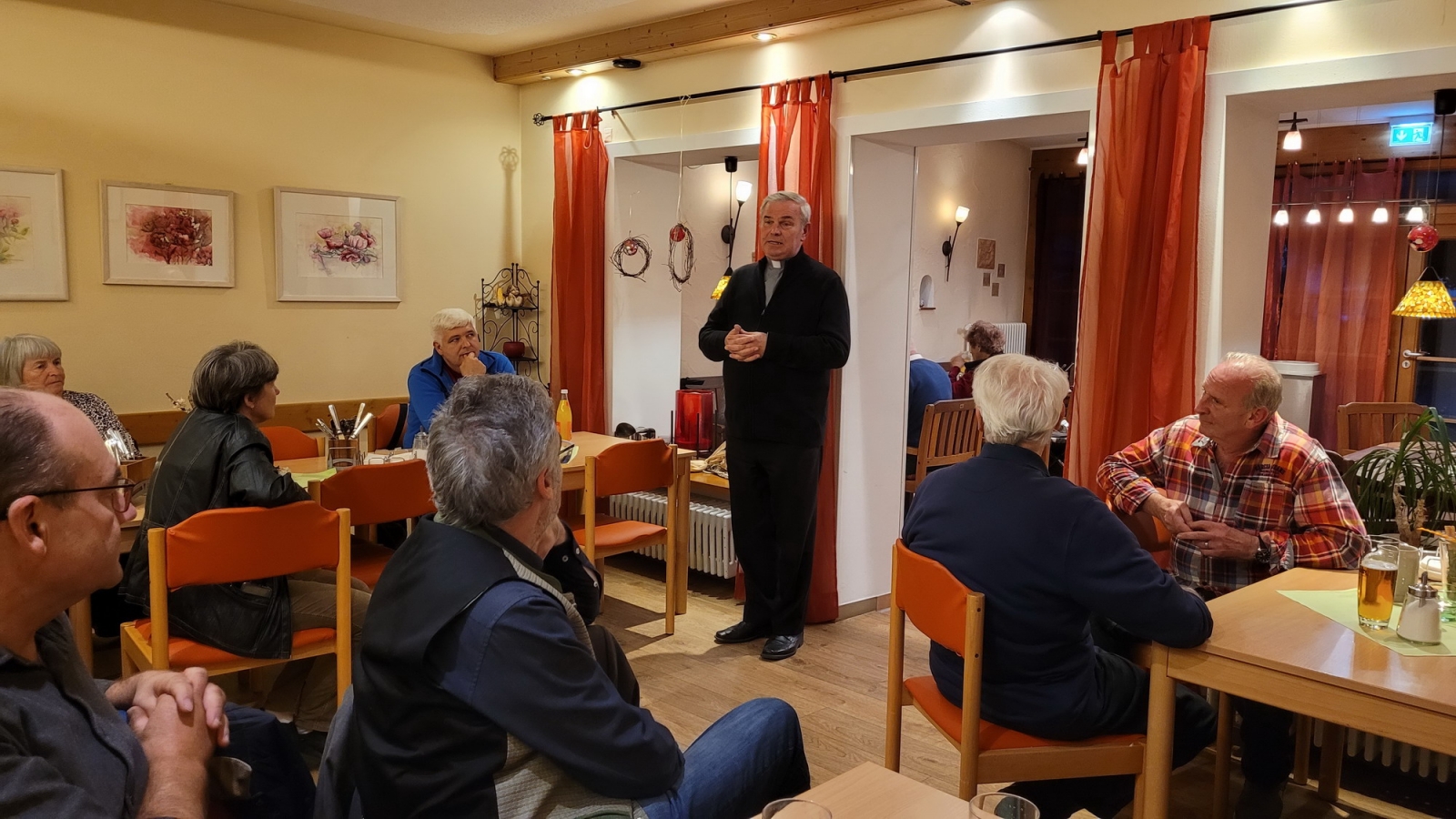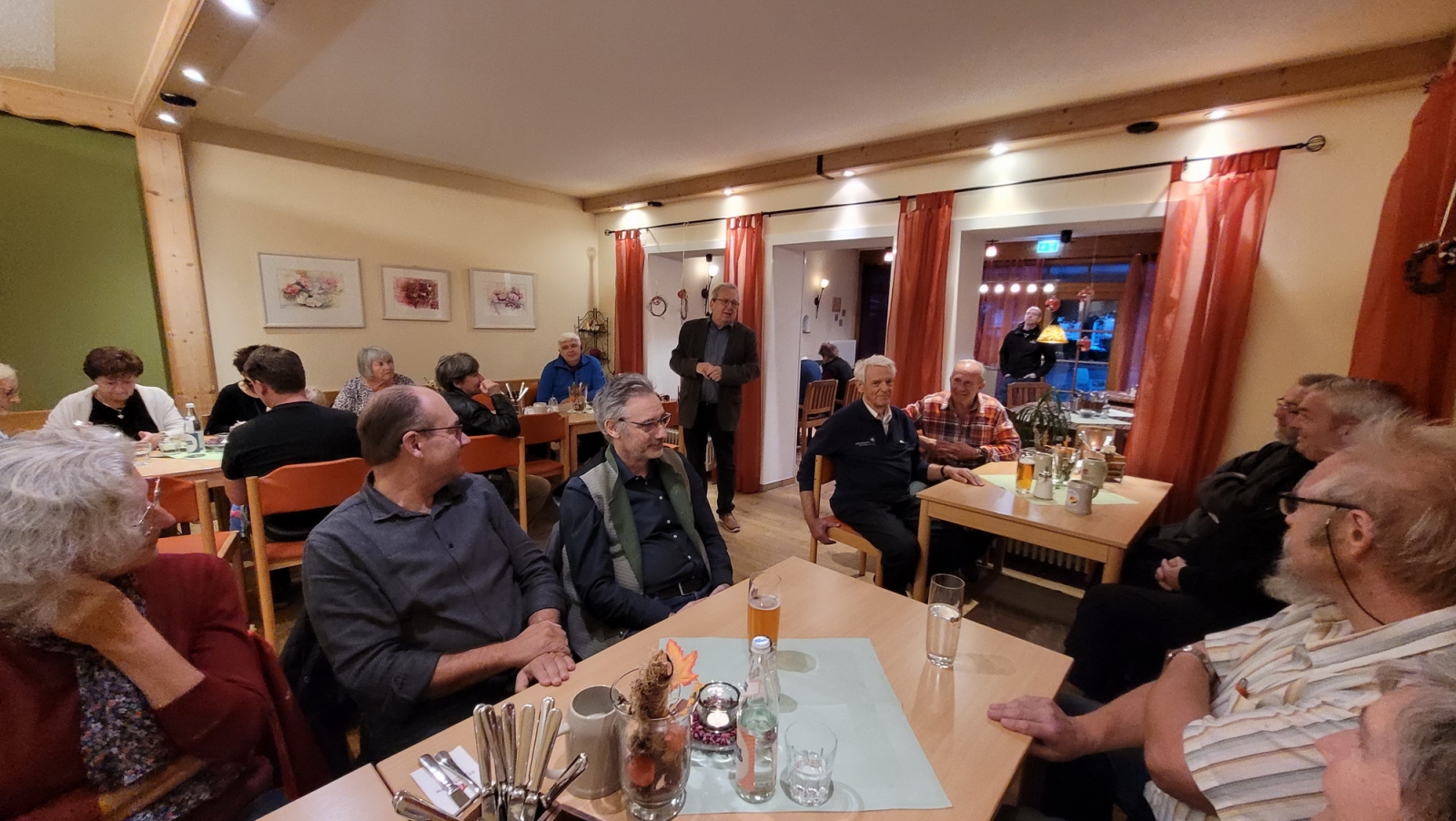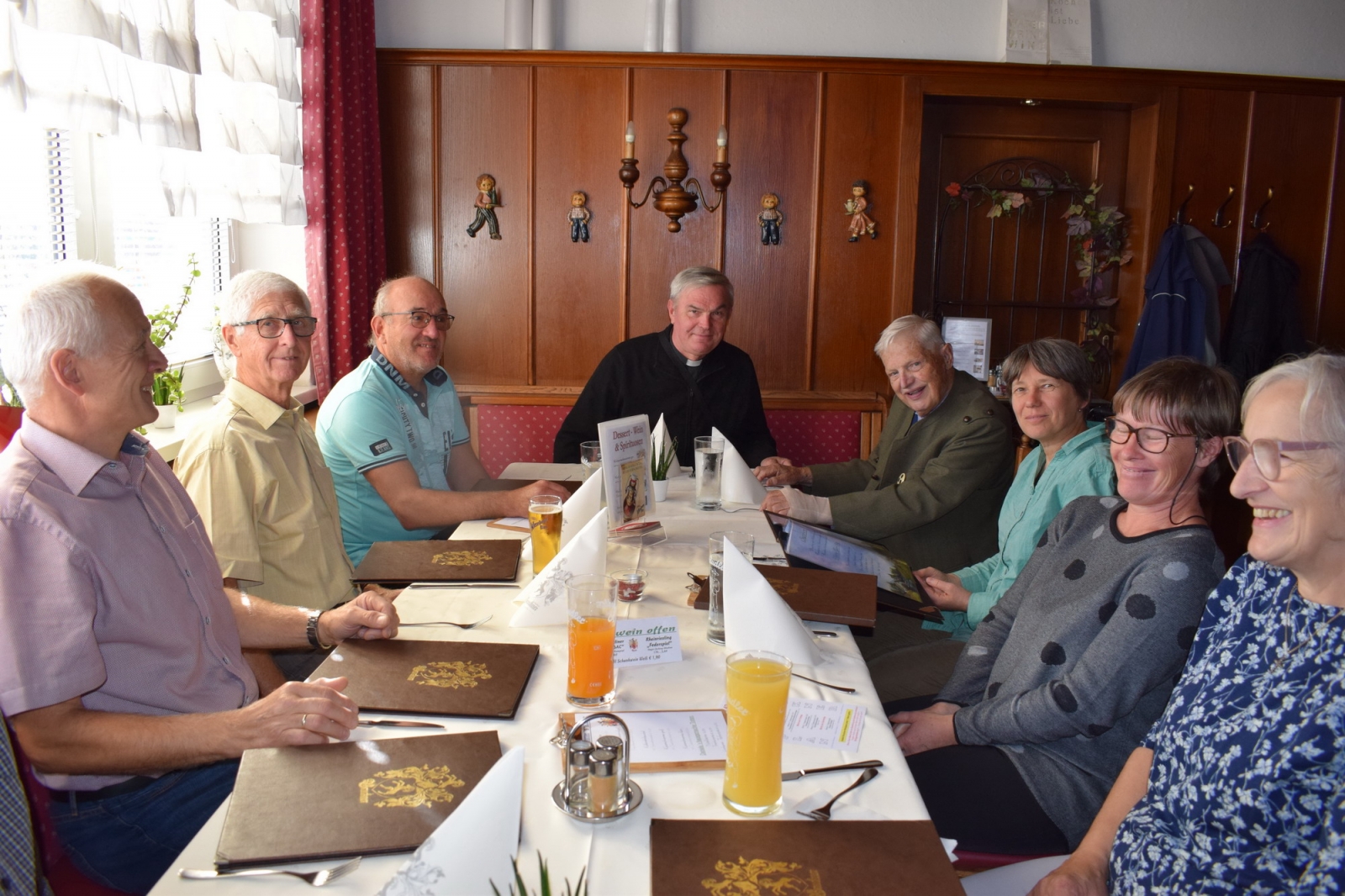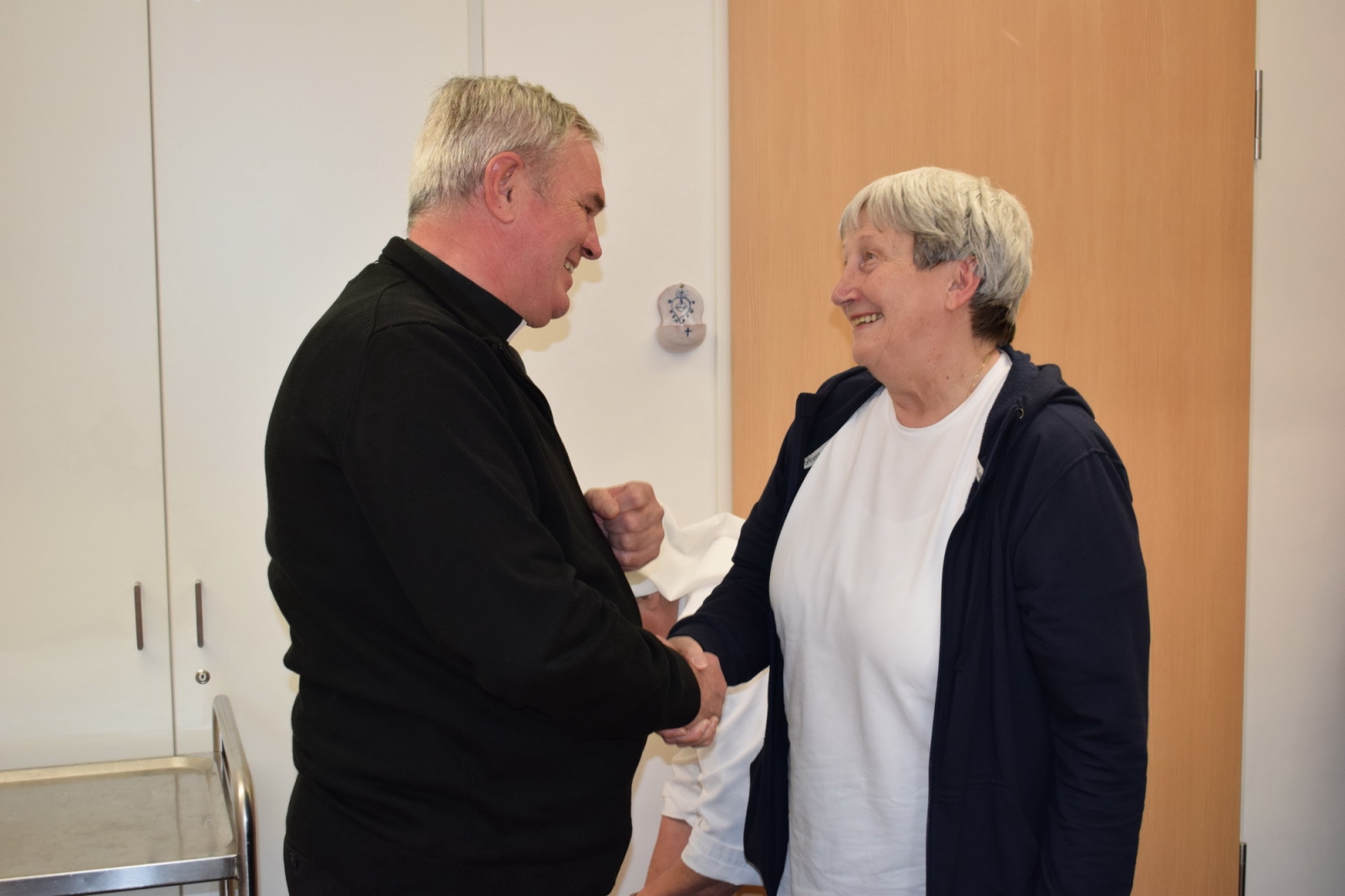The benefactor of Maria Anzbach
The first stop of the trip took us on Sunday to the small Austrian town of Maria Anzbach, a beautiful rural place surrounded by forests, where permanent deacon Peter Zidar and his wife Elisabeth have been organizing charity campaigns for almost three decades to help those in need. Their name lives almost as a concept in the local community. Not only locals, but also residents of neighboring towns bring them everything they want to donate, be it medical equipment, appliances, furniture, clothes, etc., which the couple collects, and Peter transports weekly to Oradea with his own car. He also organizes volunteer groups and constantly develops relationships in support of Caritas Catolica Association. We had the opportunity to visit his warehouse for collecting donations – a makeshift but well-maintained room ordered with military precision, which he created from a garage. Gaining insight into their daily lives, it became obvious to us how much background work is involved in organizing a charity activity.
Charity shop for the needy
On Monday, October 16, in the town of Amstetten, we learned about the special work of Sister Cornelia, who for years has been supplying bread croutons and breadcrumbs to the social canteen of the Caritas Catolica Association. The Franciscan nun volunteers at a charity shop where, in a food bank-like system, low-income people can buy short-lived products at a fraction of the original sale price. We received a guided tour of the store called SooGut, which became a regional network, under the coordination of Mrs. Selcan Ates, the director of the Amstetten headquarters.
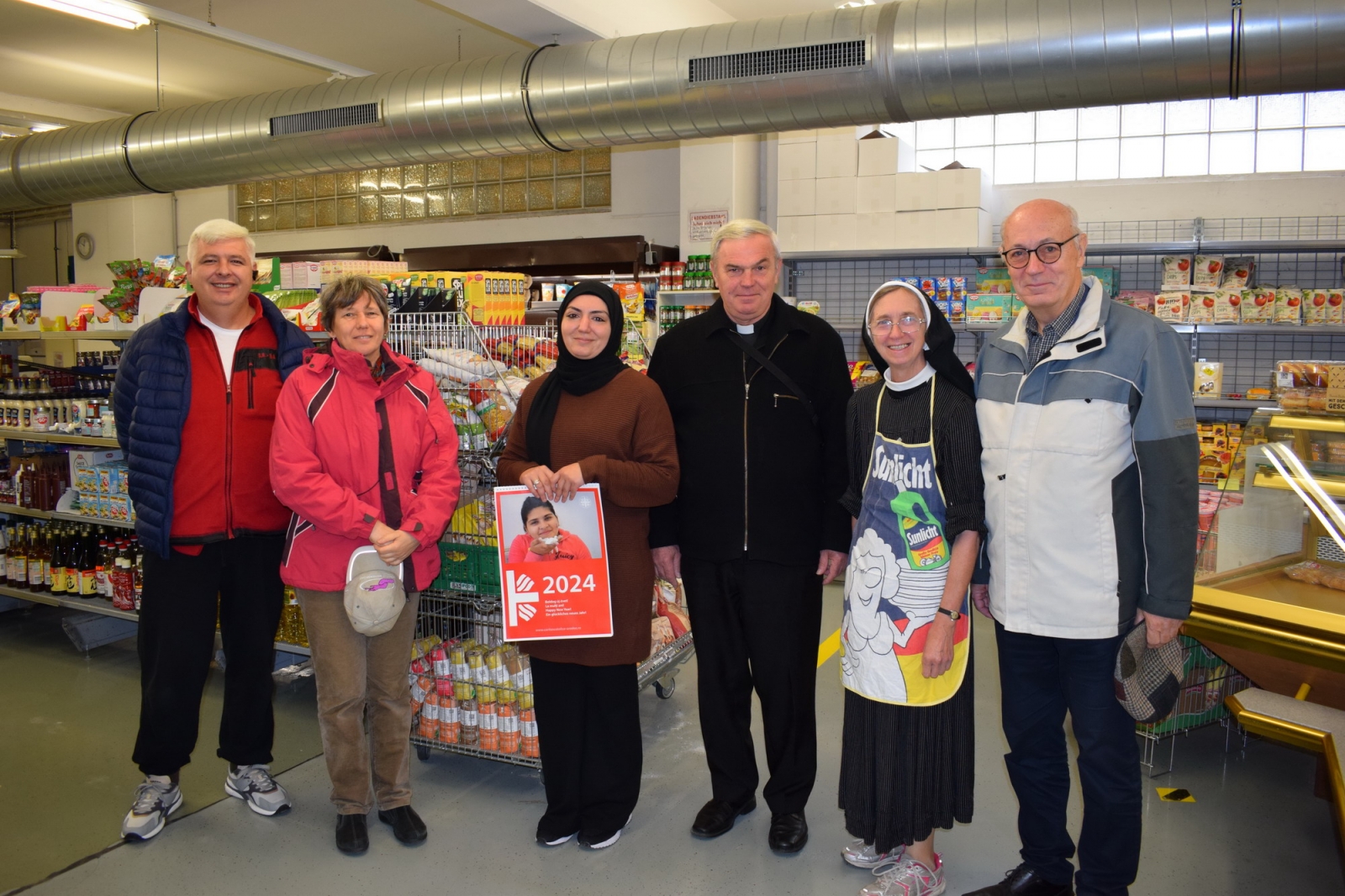
As she explained, the store collects the previous day's bakery products from local bakeries, sells them for pennies in its own system for a day, after which it donates the remains to livestock farmers in neighboring villages as feed for domestic animals so that nothing is wasted. Similarly, products that expire soon or have recently expired are collected from large shopping centers and sold under strict control as long as sanitary regulations allow it. For example, chocolate and sweets products can be kept on the shelf for a whole month after expiration, while dairy products can be kept on the shelf for a maximum of one day and with continuous quality monitoring. Frozen products have the longest shelf life: up to a year after expiry date. The selling price of such products can be one-fifth or even one-tenth of the original price. As Selcan Ates, mother of two, reported, the charity shop is a huge help for the needy and only people who are issued a membership card based on proof of income can shop there, meaning: verified beneficiaries.
100-year church school in Amstetten
Later we met Sister Irene, leader of the Franciscan nuns in Amstetten. Together with a foundation, the members of the order run a kindergarten and a pedagogical high school. The educational institution will turn 100 years old this year. Children can study there from kindergarten to graduation. Eleven nuns live and work in their center, most of them are retired, but they volunteer every day and organize fundraisers for various charitable purposes. During these activities, the sisters send hygiene items, diapers, etc. to Caritas Catolica Association in Oradea. The locals already know them well, they take donations to their monastery throughout the year, but sometimes the sisters also organize public collections for specific purposes.
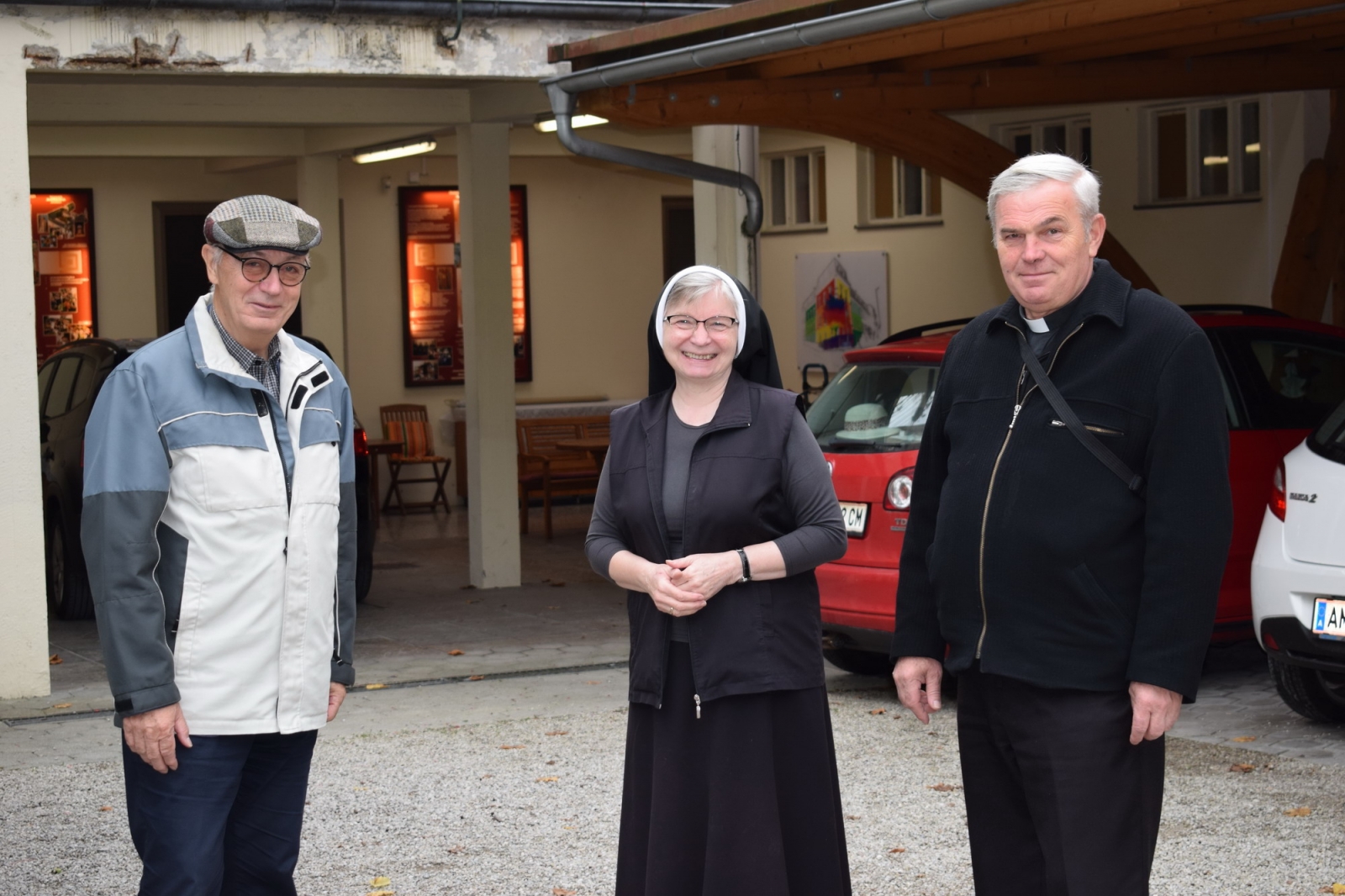
Christmas-time benefactors of children
On Monday we were able to meet with several old friends and benefactors. Among others, Werner Scholz, who supported the diocese of Oradea for decades starting in 1990 as director of Caritas St. Pölten. We had lunch with him and Mr. Martin Distelberger as well as the other members of the Wieselburg parish group, which coordinates the "Christmas shoebox" campaign to this day and supports us with other donations as well. Thanks to their activities, we can bring a smile to the faces of almost a thousand children every year on the occasion of the winter holidays.
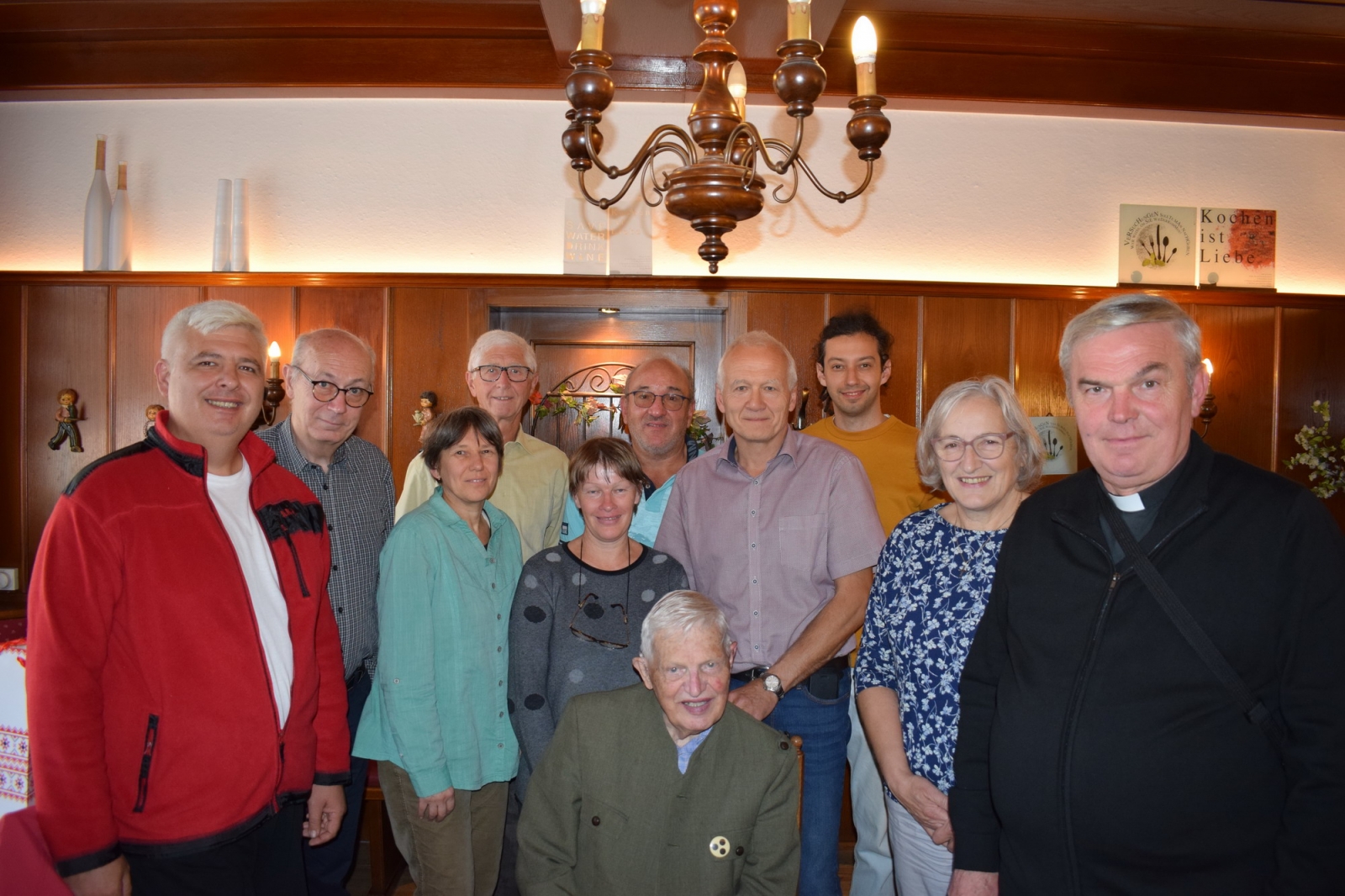
The meeting was followed by a short but pleasant afternoon of tea with the Renner family. Helene is the former leader of the Pöchlarn Women's Association, who also played an important role in organizing Christmas collections. They also organize a special week of collecting donations each season and deliver the collected goods to partners in Eastern Europe.
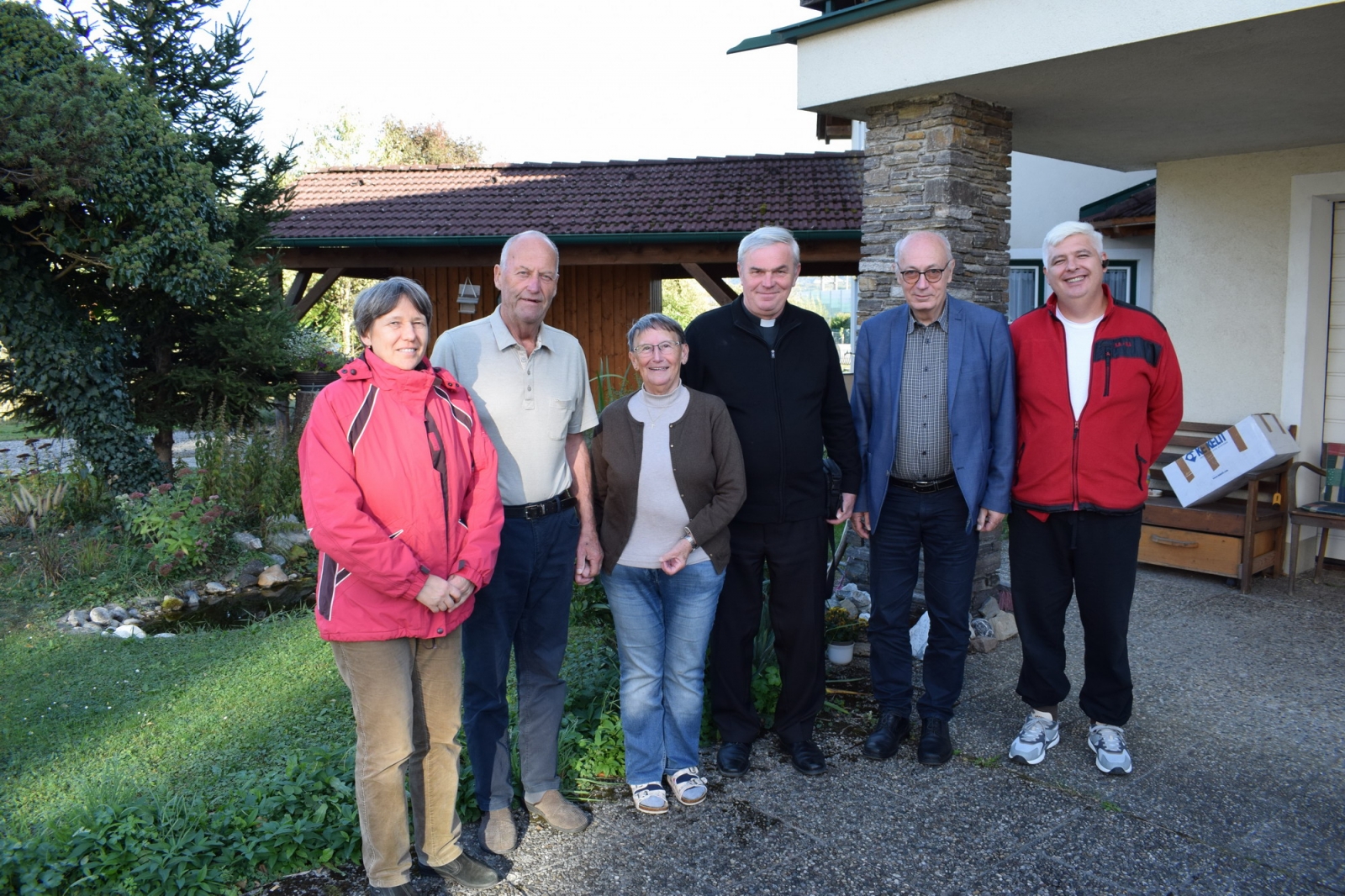
New horizons at the parish of Tulln
In the evening we met with the parish community of St. Severin Church in Tulln, our long-term partner and main sponsor of our home care department in Oşorhei. The members of the parish have already come several times to Oradea to personally visit the patients we care for. At the same time, during this meeting, we had the opportunity to meet the new priest of the parish, Father Pius Obioma Nwagwu of Nigerian origin, with whom we also discussed new opportunities for cooperation. The meeting was also attended by our dear old friend, retired parish priest Anton Schwinner, who is still actively helping the community.
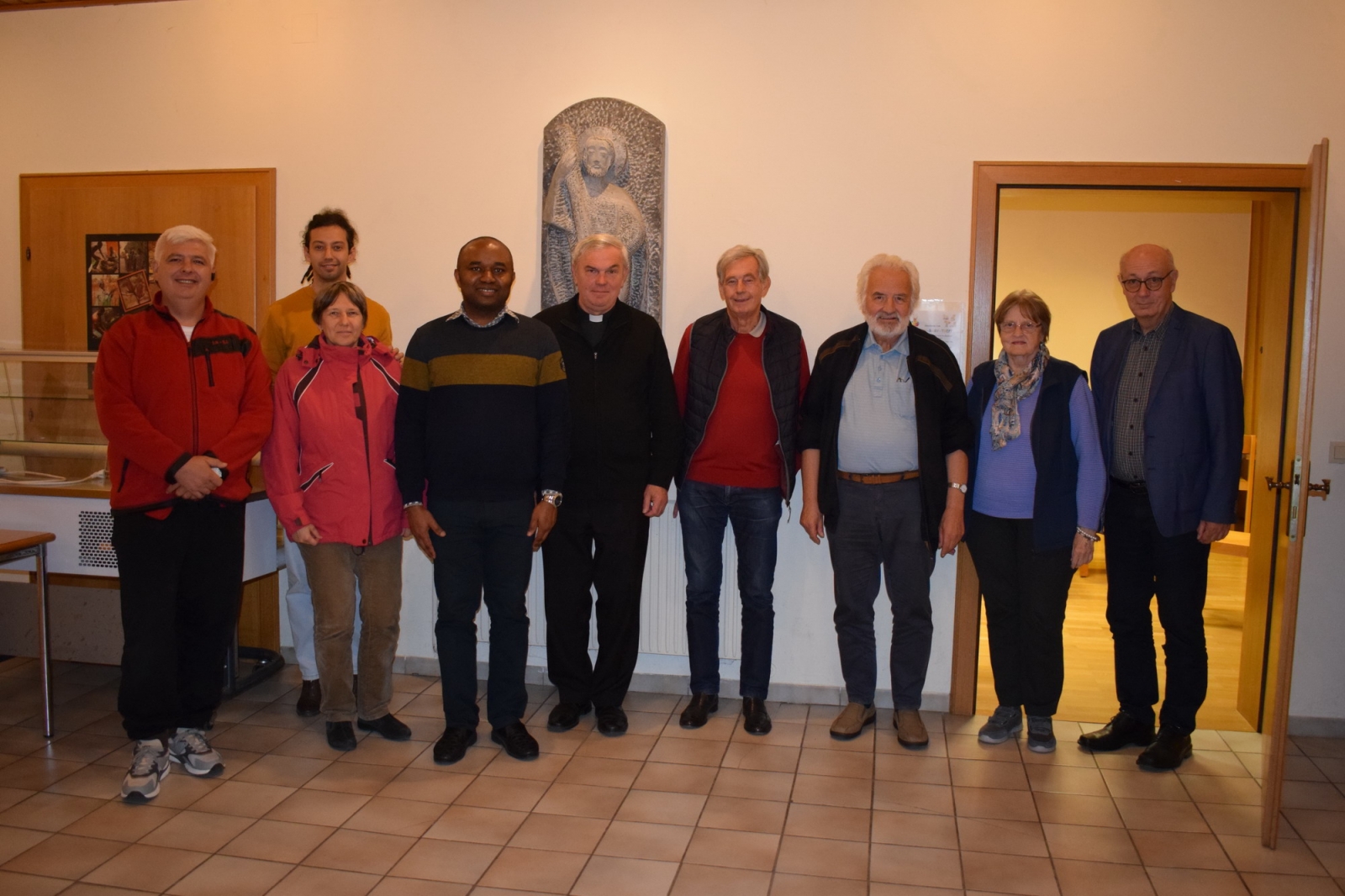
Caregivers of the sick and elderly in white uniform
The next day, Tuesday, we left for Augsburg, Germany, where we visited the local Vincentian nuns, who run a residential center for the elderly. For decades, they have supported the beneficiaries of Caritas Catolica Association in Oradea with food, clothing and medical equipment. At lunch, we talked about old memories and current challenges with sisters Ingrid, Monika, Adelina and their enthusiastic team, who are involved in value-creating activities, not only in their own parish but also in Eastern Europe through donations.
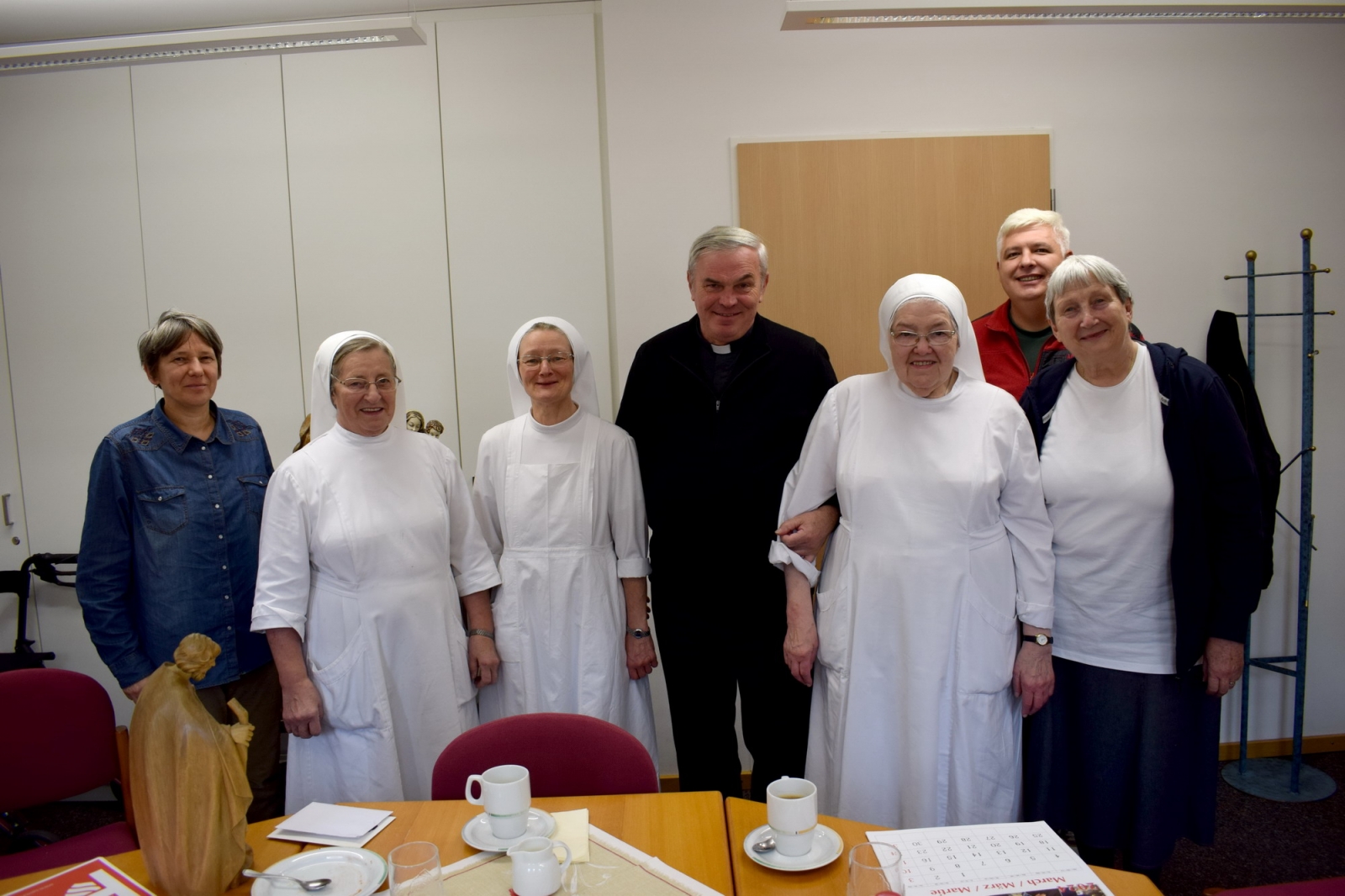
Volunteers of Villingen-Schwenningen
After travelling another few hundred kilometers, on Wednesday we visited the warehouse of one of our largest sponsors, the Freundeskreis Villingen-Schwenningen organization, where a group of devoted volunteers collects, selects and prepares for shipping donations to Eastern Europe. They regularly send second-hand clothes, furniture and household items to Caritas Catolica Oradea. It was a pleasure to meet again the founder of the organization, Mrs. Irmgard Rösch, this old woman with a warm heart and an iron will, who, at the age of 89, still organizes the activity with enthusiasm and firm hand, and with whom we not only shared nostalgic memories, but also talked about continuing in the future.

Hospitality with heart and soul
At arrival in Altötting, Germany, on Wednesday evening, we experienced the immense hospitality of Mr. Christian Randl, director of St. Elizabeth's House, run by the local Caritas organization – a man with his profession up his sleeve. Christian has dedicated his entire life to charity and has a completely new vision of what Caritas should represent in the present times. In his opinion, Caritas should not only be about combating poverty and disease, but also about joy and community building. This is what he and his team accomplish every day when they offer holiday opportunities and excursions for adults with mental and physical disabilities, as well as charity concerts with renowned volunteer artists. We were able to experience the spirit of this activity at a dinner in a family atmosphere with live music.

In the cell of Saint Konrad
Thursday started with a special experience: after visiting the old center of the pilgrimage town of Altötting, the leader of the delegation from Oradea, General Director József Rajna, celebrated the Divine Liturgy in the monastic cell where Saint Konrad of Parzham lived and died. In his Puritan room, a small chapel was arranged, capable of accommodating 4-5 people. It was an uplifting feeling to participate in the liturgical ceremony in an intimate atmosphere with partners from Altötting.
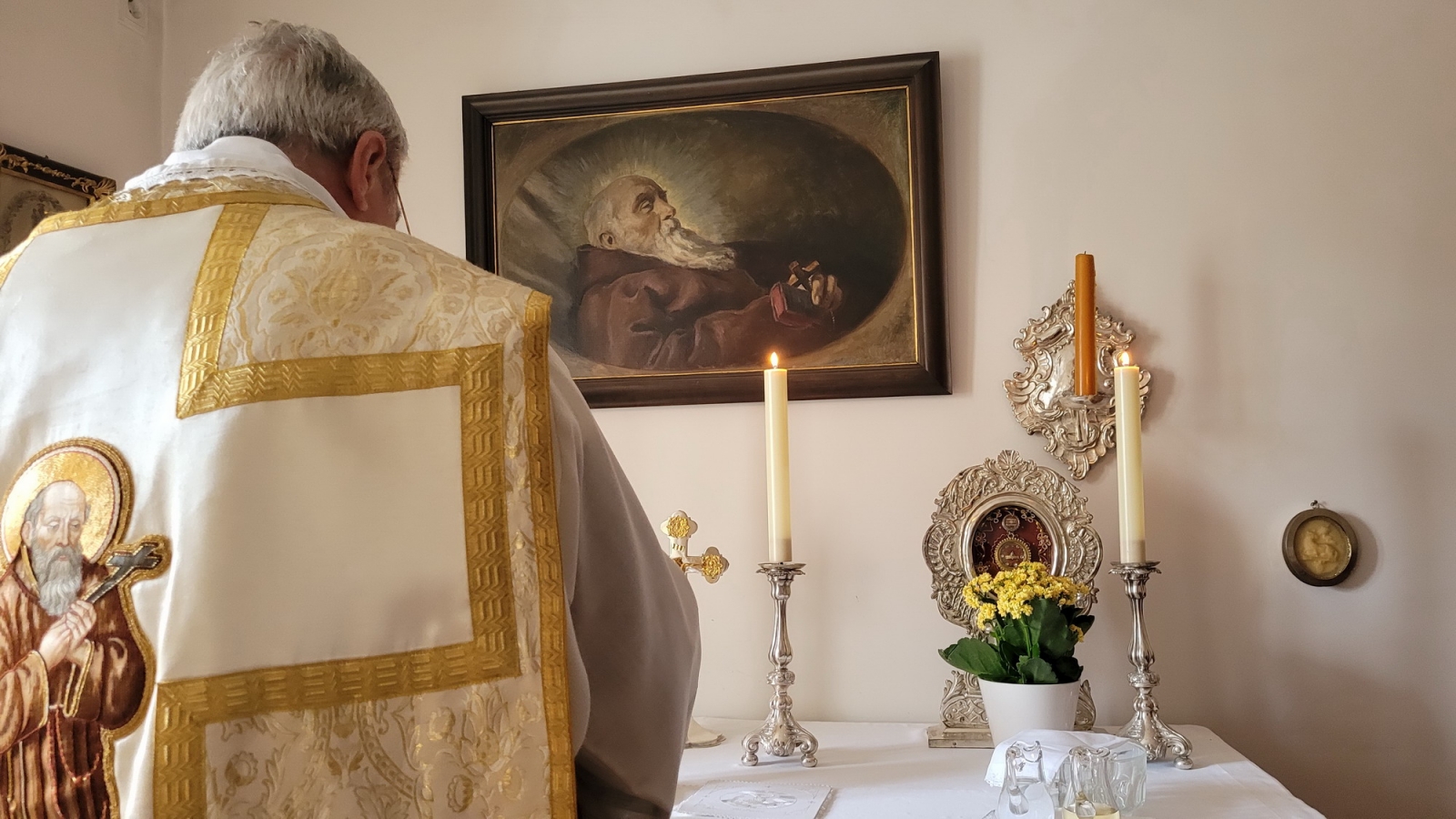
The power of the Caritas family
In the afternoon, Caritas Catolica Oradea delegates had a meeting with representatives of the local organization Kreis-Caritasverband Altötting, executive director Josef Schropp and board member Petra Genz. As Josef Schropp pointed out, with regard to donations, they are trying to shift attention away from shipments of second-hand clothing, because regulations have tightened and the export of textiles to Eastern Europe is neither environmentally nor economically sustainable. Instead, they try to collect donations in a targeted way, with fewer but much more efficient transports – consequently, they have also assured Caritas in Oradea of their continuous support.
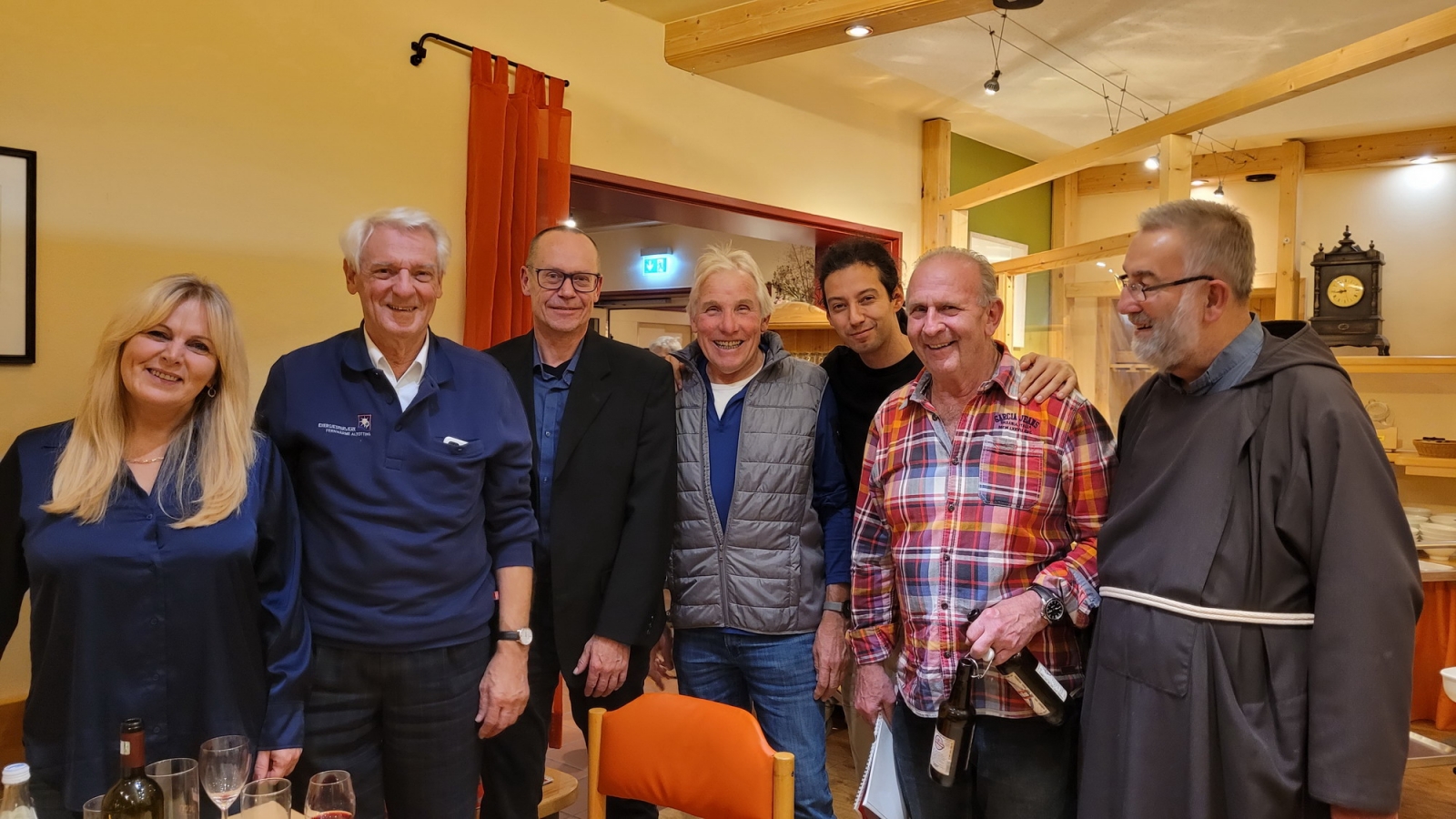
The highlight of the meeting in Altötting and of the entire week-long trip was the gala dinner organized in honor of Oradeans, attended by almost all members of the local Caritas family. During our time together, we experienced the power of this community, which is united by charity and a desire to help, transcending borders and cultures.

